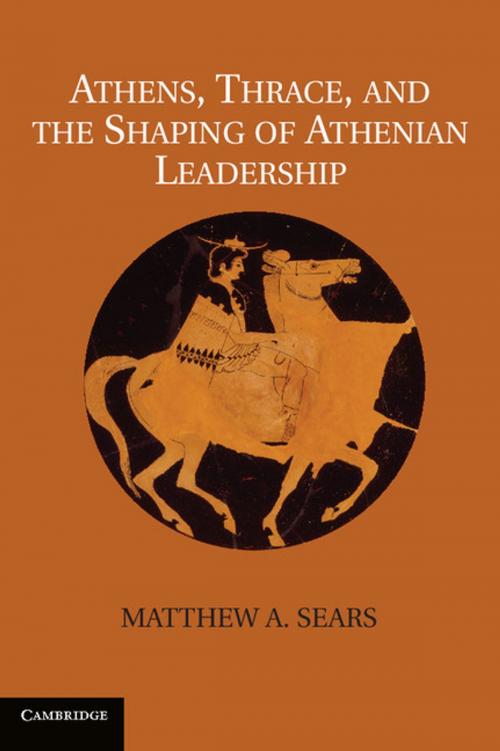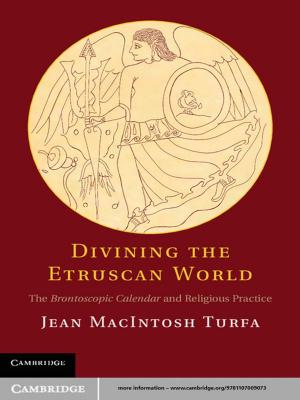Athens, Thrace, and the Shaping of Athenian Leadership
Nonfiction, History, Ancient History, Social & Cultural Studies, Political Science| Author: | Matthew A. Sears | ISBN: | 9781139611060 |
| Publisher: | Cambridge University Press | Publication: | March 25, 2013 |
| Imprint: | Cambridge University Press | Language: | English |
| Author: | Matthew A. Sears |
| ISBN: | 9781139611060 |
| Publisher: | Cambridge University Press |
| Publication: | March 25, 2013 |
| Imprint: | Cambridge University Press |
| Language: | English |
From the mid-sixth to the mid-fourth century BCE a nexus of connections to Thrace defined the careers of several of Athens' most prominent figures, including Pisistratus, Miltiades, Alcibiades and Iphicrates. This book explores the importance of Thrace to these individuals and its resulting significance in the political, cultural and social history of Athens. Thrace was vitally important for Athens thanks to its natural resources and access to strategic waterways, which were essential to a maritime empire, and connections to the area conferred wealth and military influence on certain Athenians and offered them a refuge if they faced political persecution at home. However, Thrace's importance to prominent individuals transcended politics: its culture was also an important draw. Thrace was a world free of Athenian political, social and cultural constraints – one that bore a striking resemblance to the world of Homeric epic.
From the mid-sixth to the mid-fourth century BCE a nexus of connections to Thrace defined the careers of several of Athens' most prominent figures, including Pisistratus, Miltiades, Alcibiades and Iphicrates. This book explores the importance of Thrace to these individuals and its resulting significance in the political, cultural and social history of Athens. Thrace was vitally important for Athens thanks to its natural resources and access to strategic waterways, which were essential to a maritime empire, and connections to the area conferred wealth and military influence on certain Athenians and offered them a refuge if they faced political persecution at home. However, Thrace's importance to prominent individuals transcended politics: its culture was also an important draw. Thrace was a world free of Athenian political, social and cultural constraints – one that bore a striking resemblance to the world of Homeric epic.















